




When it comes to keeping your clothes clean and fresh, your washing machine is an essential appliance. However, there are several factors that can cause damage to your washing machine and lead to costly repairs or even the need for a replacement.
One common factor that can cause damage to your washing machine is overloading. It can be tempting to stuff as many clothes as possible into a single load to save time and energy. However, overloading your machine can put a strain on its motor and other components, leading to increased wear and tear and reducing its lifespan.
Another factor that can cause damage to your washing machine is using too much detergent. While it’s important to use enough detergent to get your clothes clean, using excessive amounts can create excessive suds, which can lead to clogs in the machine’s hoses and pump. The buildup of residue can also affect the machine’s overall performance and efficiency.
Lastly, neglecting regular maintenance can also cause damage to your washing machine. Failing to clean the detergent dispenser, drain pump filter, and washing drum can lead to the accumulation of dirt, debris, and mold, which can affect the machine’s performance and cause unpleasant odors. It’s important to follow the manufacturer’s instructions and schedule regular maintenance to keep your washing machine running smoothly.
In conclusion, to prevent damage to your washing machine and ensure its longevity, it’s important to avoid overloading, use the correct amount of detergent, and perform regular maintenance. By taking these simple steps, you can keep your clothes clean and fresh while avoiding unnecessary expenses and inconveniences.
Hard Water Mineral Buildup
Hard water is water that contains a high concentration of minerals, such as calcium and magnesium. Over time, these minerals can build up in your washing machine, causing several issues.
Signs of Hard Water Mineral Buildup
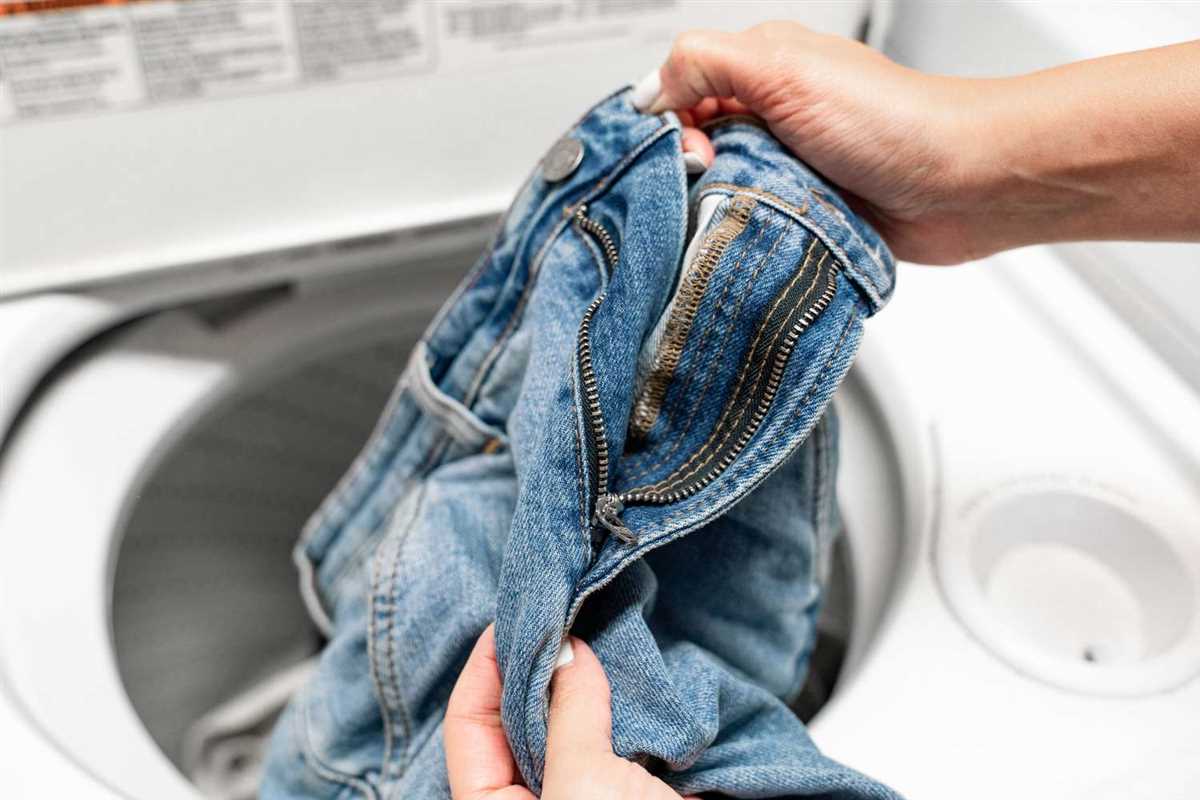
- White or grayish stains on your clothes
- Soap scum on the inside of the washing machine
- Limescale deposits on the heating element or other parts of the machine
- Reduced water flow or clogged water valves
Effects of Hard Water Mineral Buildup
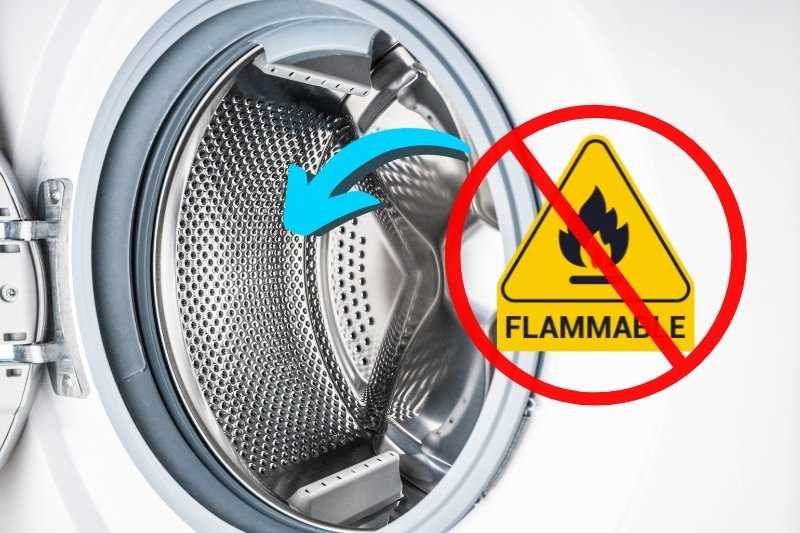
The mineral buildup caused by hard water can have several negative effects on your washing machine:
- Reduced cleaning efficiency: The minerals can interfere with the detergent’s ability to remove dirt and stains from your clothes, resulting in less effective cleaning.
- Damage to machine components: The mineral deposits can accumulate on the heating element, water valves, and other internal parts, reducing their efficiency and lifespan.
- Increased energy consumption: As the mineral buildup restricts water flow, the washing machine may require more energy to operate efficiently, leading to higher energy bills.
Preventing and Treating Hard Water Mineral Buildup
To prevent and treat hard water mineral buildup in your washing machine, consider the following:
- Water softener: Install a water softener system to remove or reduce the minerals in the water supply.
- Descaling agent: Regularly use a descaling agent specifically designed for washing machines to remove existing mineral deposits.
- Regular cleaning: Clean the detergent dispenser, drum, and gasket regularly to prevent buildup.
- Use vinegar: Run a wash cycle with vinegar to help dissolve and remove mineral deposits.
By addressing the issue of hard water mineral buildup, you can prolong the lifespan of your washing machine and ensure optimal cleaning results.
Overloading the Machine
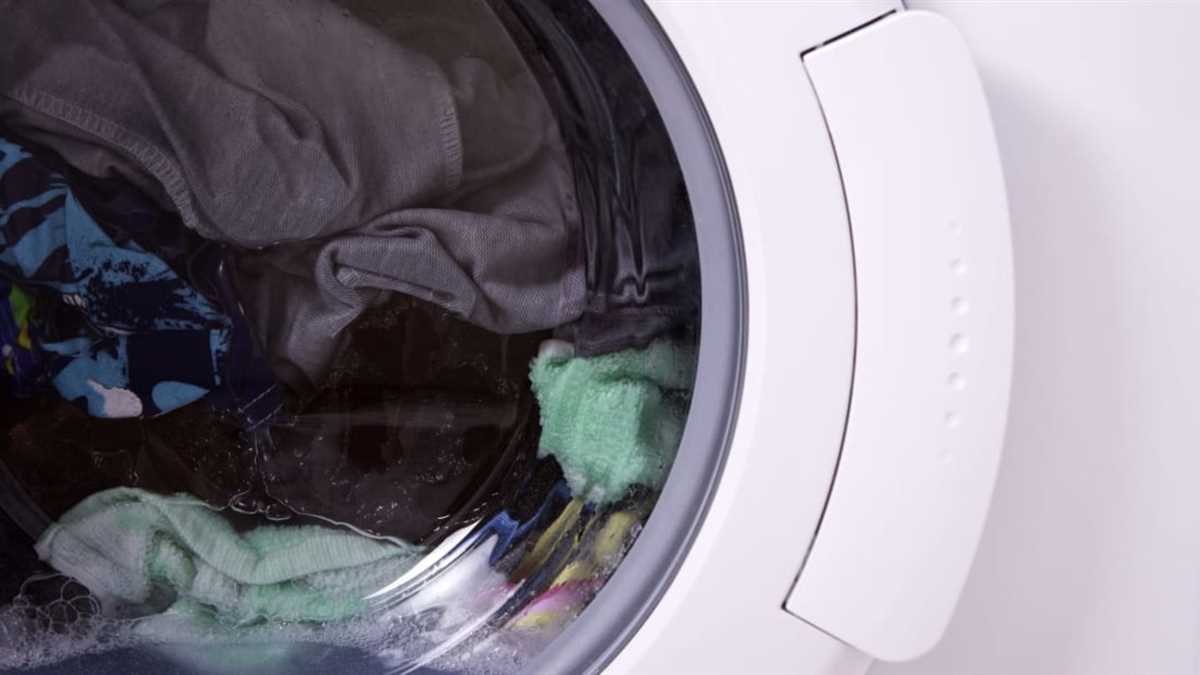
Overloading your washing machine with too many clothes can cause significant damage to the machine. It’s tempting to try and fit as much laundry as possible into one load to save time and energy, but this can have negative consequences.
1. Strain on the Motor: When the machine is overloaded, the motor has to work harder to agitate the clothes and distribute water and detergent. This can put excessive strain on the motor and lead to overheating or burnout.
2. Uneven Distribution: Overloading the machine can prevent the clothes from properly spreading out during the wash cycle. This can result in an uneven distribution of weight and cause the machine to become unbalanced. An unbalanced machine can cause excessive vibrations, loud noises, and can lead to damage to internal components.
3. Inefficient Cleaning: When there are too many clothes in the machine, they may not be able to move freely and properly agitate during the wash cycle. This can result in inadequate cleaning and rinsing. Some clothes may not even get wet or properly rinsed, leading to a subpar cleaning result.
4. Longer Wash Times: Overloading the machine can also cause longer wash cycles. This is because the machine needs more time to agitate the clothes and distribute water and detergent effectively. Longer wash times not only waste energy, but they also put additional strain on the machine’s components.
To avoid these issues, it is important to follow the recommended load capacity guidelines provided by the manufacturer. It is better to do multiple smaller loads than to overload the machine with too much laundry. This will help protect your washing machine and ensure you get the best cleaning results.
Using the Wrong Type of Detergent
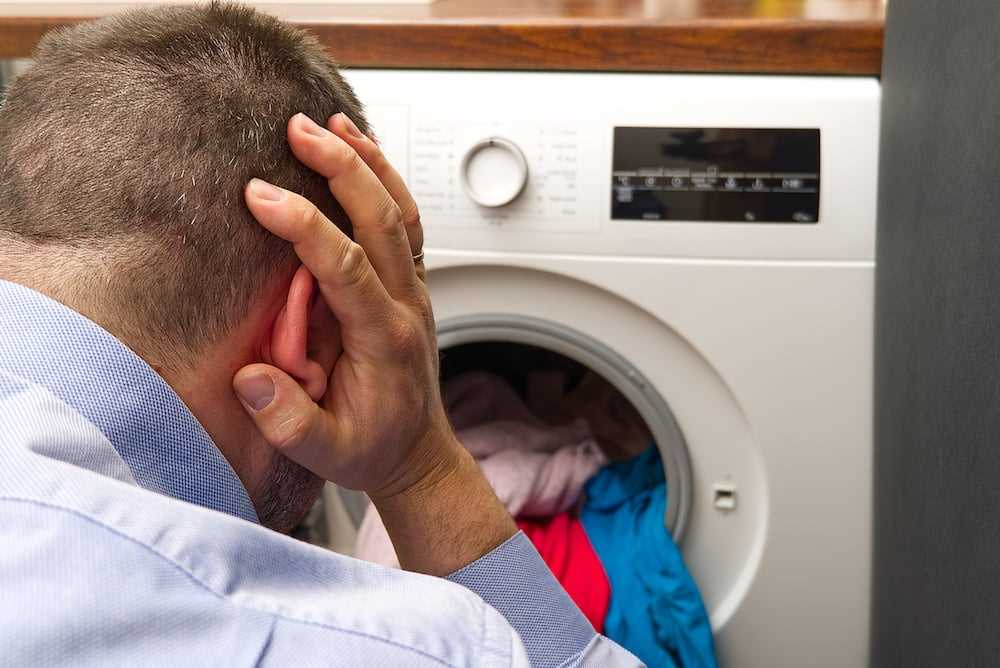
One common factor that can cause damage to your washing machine is using the wrong type of detergent. Using the wrong detergent can lead to various issues, such as poor cleaning results, excessive suds, and even damage to the machine itself.
The Importance of Using the Right Detergent
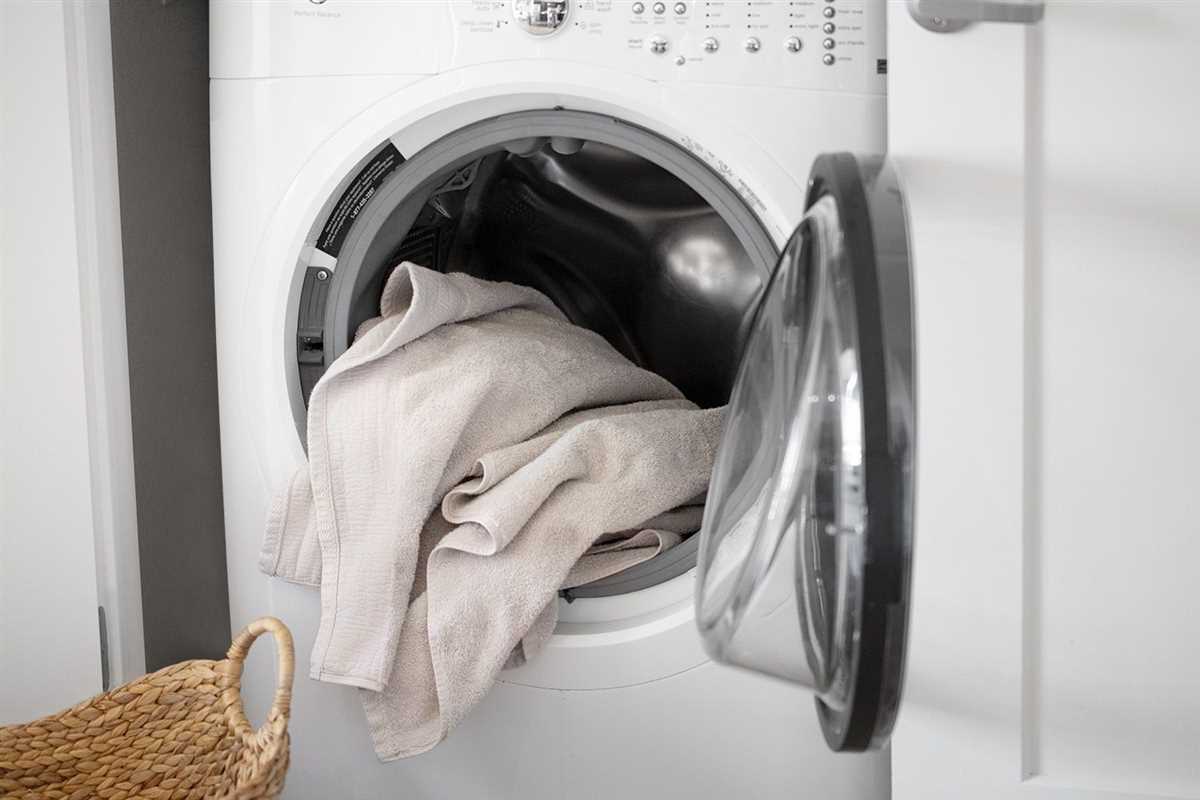
Using the right detergent is essential for maintaining the performance and longevity of your washing machine. Different types of washing machines require specific detergents to function optimally.
1. HE (High-Efficiency) washing machines:
- HE washing machines are designed to use High-Efficiency detergents.
- These detergents are specially formulated to produce fewer suds, which is important for the efficient operation of HE machines.
- Using regular detergent in an HE machine can cause excessive sudsing, leading to issues like poor cleaning, foul odors, and even damage to the machine.
2. Regular top-load washers:
- Regular top-load washers typically require standard or traditional detergents.
- These detergents are designed to produce more suds, which helps with the agitation and cleaning process in these machines.
- Using HE detergent in a regular top-load washer may not provide adequate cleaning results and can cause excessive sudsing, potentially leading to damage.
Tips for Choosing the Right Detergent
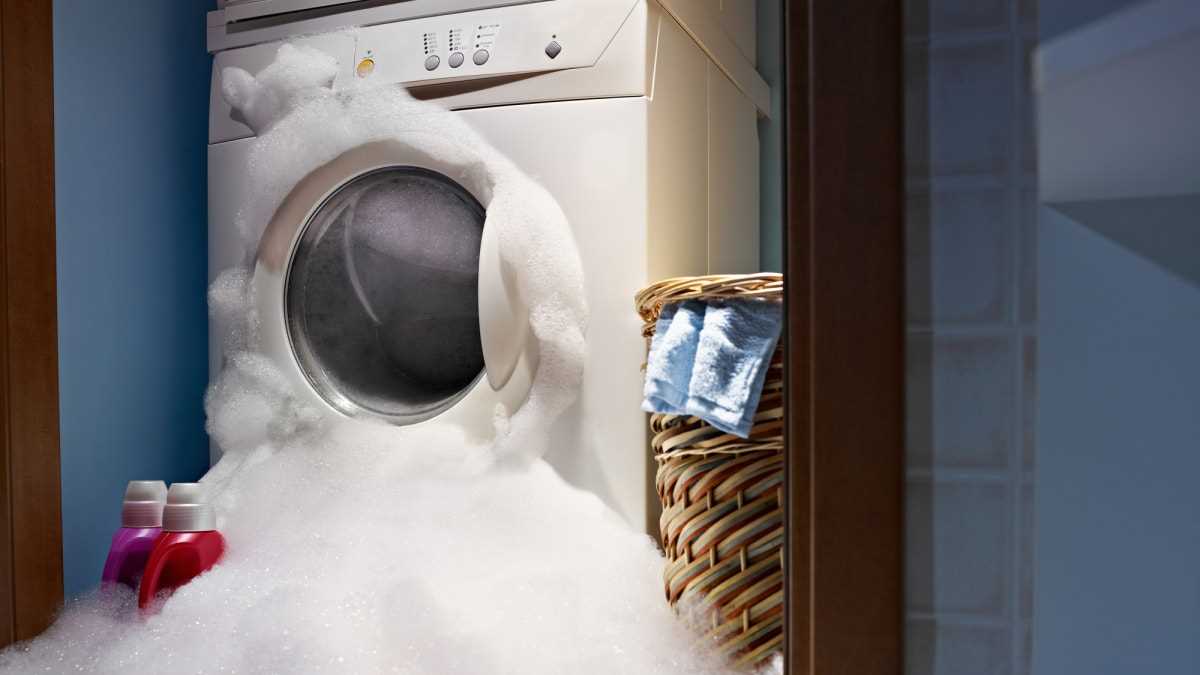
1. Read the manufacturer’s instructions:
- Always refer to the manufacturer’s instructions for your specific washing machine model to determine the recommended type of detergent.
2. Look for the HE symbol:
- If you have an HE washing machine, look for detergents labeled with the “HE” symbol to ensure compatibility and optimal performance.
3. Consider the type of fabric and stains:
- Choose a detergent that suits the type of fabric and stains you typically deal with.
- Some detergents may have specialized formulations for specific fabrics or stain removal.
Conclusion
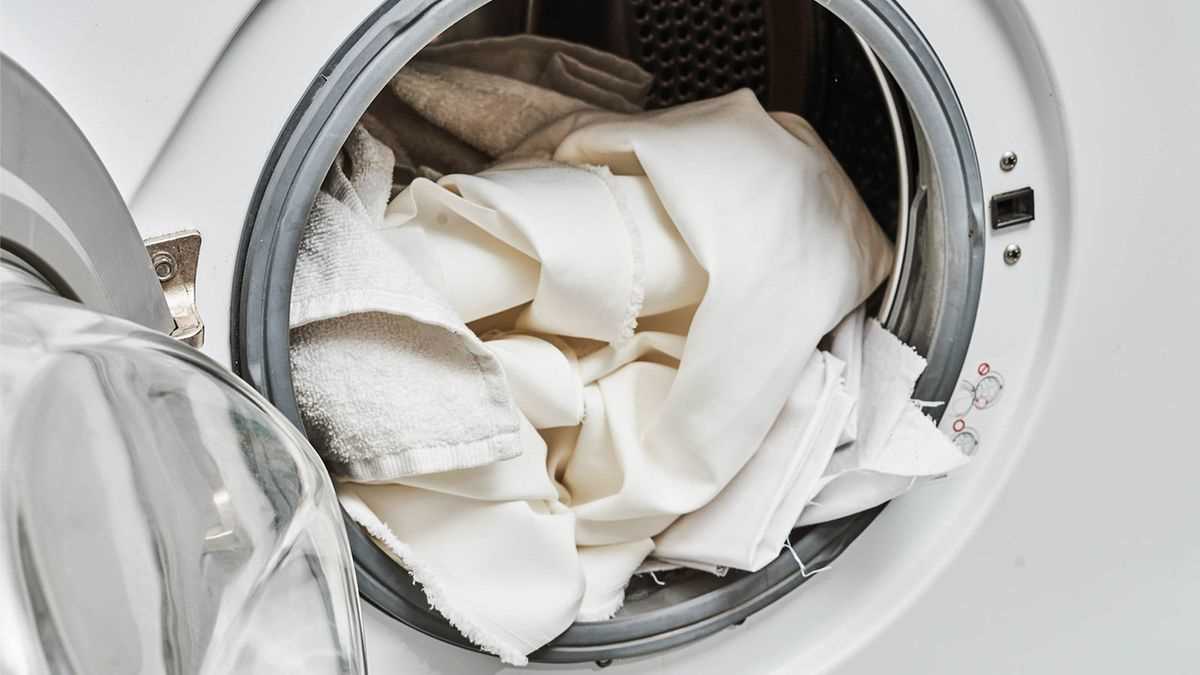
Using the wrong type of detergent can have negative effects on your washing machine’s performance and longevity. Make sure to choose the appropriate detergent based on your washing machine’s requirements to ensure optimal cleaning results and prevent any potential damage.
Ignoring Regular Maintenance
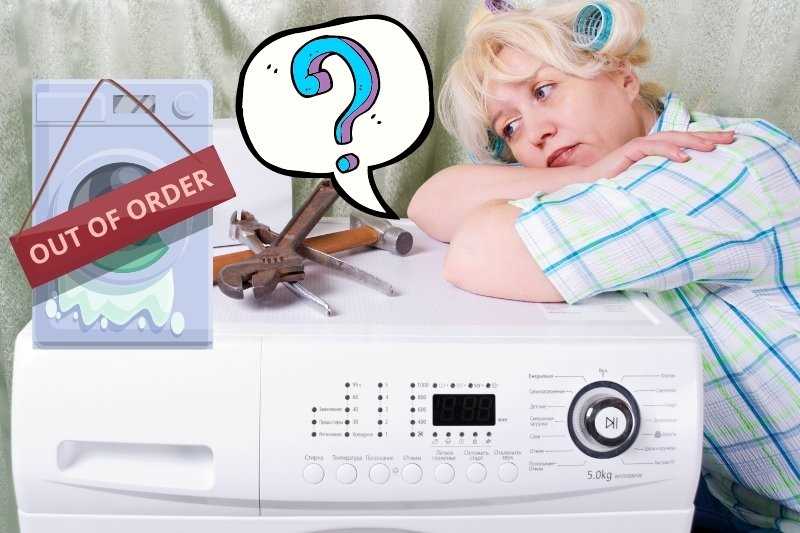
Regular maintenance is crucial for keeping your washing machine in good working condition. Ignoring regular maintenance can lead to various issues and potentially cause damage to your machine. Here are some common maintenance tasks that you should never ignore:
- Cleaning: Regularly clean the drum, detergent drawer, and filters to remove any dirt, lint, or debris that may accumulate over time. This will help prevent clogs and maintain optimal performance.
- Checking Hoses: Inspect the inlet and outlet hoses for any signs of damage, such as leaks, cracks, or bulges. Replace any faulty hoses immediately to avoid potential flooding or water damage.
- Leveling: Ensure that your washing machine is properly leveled. An unbalanced machine can lead to excessive vibration and noise, potentially causing damage to its internal components.
- Inspecting Belts: Check the belts for any signs of wear and tear. Over time, belts can become loose or deteriorate, which can affect the machine’s performance. Replace worn belts as needed.
- Checking Filters: Some washing machines have additional filters, such as lint traps or drain filters. Make sure to regularly clean or replace these filters as recommended by the manufacturer.
By ignoring regular maintenance, you may not only compromise the performance and efficiency of your washing machine but also increase the risk of costly repairs or even premature machine failure. Take the time to perform these maintenance tasks to prolong the life of your washing machine and keep it running smoothly.
Power Surges and Electrical Issues
Electrical issues, including power surges, can cause significant damage to your washing machine. Here are some common factors to be aware of:
- Power Surges: Power surges occur when there is a sudden increase in electrical voltage. These surges can disrupt the normal functioning of your washing machine and cause damage to its internal components, such as the control board or motor.
- Inadequate Power Supply: If your washing machine is not getting enough power, it may struggle to operate properly. This can lead to issues such as slow spinning, incomplete cycles, or even complete breakdown of the appliance.
- Poor Electrical Connections: Loose or faulty electrical connections can cause problems with your washing machine. These issues can result in power fluctuations, tripped circuit breakers, or even electrical fires.
- Power Outages: Frequent power outages or power cuts can disrupt the normal functioning of your washing machine. It is important to ensure that your washing machine is properly protected against sudden power loss to prevent any damage or malfunction.
To protect your washing machine from power surges and electrical issues, consider taking the following precautions:
- Install a surge protector: Plugging your washing machine into a surge protector can help protect it from sudden voltage spikes. Make sure to use a surge protector with the appropriate joule rating for your appliances.
- Check the power supply: Ensure that your washing machine is receiving adequate power by checking the voltage and amperage requirements. If necessary, consider hiring an electrician to upgrade your electrical system.
- Maintain proper electrical connections: Regularly inspect the electrical connections of your washing machine and ensure that they are secure and free from any damage. If you notice any issues, contact a qualified electrician to make the necessary repairs.
- Consider a generator or uninterruptible power supply (UPS): Investing in a generator or UPS can help provide backup power during outages and protect your washing machine from sudden power loss.
By being aware of power surges and electrical issues, and taking the necessary precautions, you can help protect your washing machine from damage and extend its lifespan.
FAQ
How can I prevent my washing machine from getting damaged?
To prevent damage to your washing machine, you should avoid overloading it with clothes, use the recommended amount of detergent, clean the drum regularly, and inspect the hoses for any signs of wear or damage. Additionally, it’s important to avoid using excessive force when closing the door or lid of the washing machine.
What can be the consequences of using too much detergent in the washing machine?
Using too much detergent in your washing machine can lead to excessive suds, which can cause overflow and damage to the machine. The excess detergent can also build up inside the drum and pipes, leading to clogs and reduced performance of the machine. It’s important to follow the manufacturer’s guidelines and use the recommended amount of detergent for each wash.
What should I do if I notice a leak from my washing machine?
If you notice a leak from your washing machine, you should first turn off the machine and disconnect it from the power source. Then, check the hoses and connections for any signs of damage or loose fittings. Tighten any loose connections and replace any damaged hoses. If the problem persists, it’s best to contact a professional technician to inspect and repair the machine.
Can hard water cause damage to a washing machine?
Yes, hard water can cause damage to a washing machine over time. The minerals in hard water can build up inside the machine, leading to clogs in the pipes and reduced efficiency. It can also cause the heating element to become coated with mineral deposits, affecting its performance. To prevent this, using a water softener or descaler can help reduce the effects of hard water on your washing machine.
Is it normal for a washing machine to vibrate during operation?
Some vibration is normal during the operation of a washing machine, especially during certain cycles. However, excessive vibration can be a sign of an underlying issue. You should check that the machine is level and stable on the floor, and make sure that the clothes are evenly distributed inside the drum. If the vibration is persistent and severe, it’s best to contact a technician to inspect and repair the machine.














